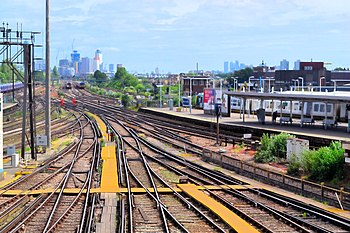
Back تعقيد اجتماعي Arabic Complejidad social Spanish پیچیدگی اجتماعی Persian Complexidade social Portuguese Социальная сложность Russian

In sociology, social complexity is a conceptual framework used in the analysis of society. In the sciences, contemporary definitions of complexity are found in systems theory, wherein the phenomenon being studied has many parts and many possible arrangements of the parts; simultaneously, what is complex and what is simple are relative and change in time.[1]
Contemporary usage of the term complexity specifically refers to sociologic theories of society as a complex adaptive system, however, social complexity and its emergent properties are recurring subjects throughout the historical development of social philosophy and the study of social change.[2]
Early theoreticians of sociology, such as Ferdinand Tönnies, Émile Durkheim, and Max Weber, Vilfredo Pareto and Georg Simmel, examined the exponential growth and interrelatedness of social encounters and social exchanges. The emphases on the interconnectivity among social relationships, and the emergence of new properties within society, is found in the social theory produced in the subfields of sociology.[3] Social complexity is a basis for the connection of the phenomena reported in microsociology and macrosociology, and thus provides an intellectual middle-range for sociologists to formulate and develop hypotheses.[4][5] Methodologically, social complexity is theory-neutral, and includes the phenomena studied in microsociology and the phenomena studied in macrosociology.[2]
- ^ Waldrop, M. Mitchell (1992.) Complexity: The Emerging Science at the Edge of Order and Chaos. New York, NY: Simon & Schuster.
- ^ a b Eve, Raymond, Sara Horsfall and Mary E. Lee (eds.) (1997). Chaos, Complexity and Sociology: Myths, Models, and Theories. Thousand Oaks, CA: Sage Publications.
- ^ Giddens, Anthony (1979). Central problems in Social Theory: Action, Structure and Contradiction in Social Analysis. London: Macmillan.
- ^ Freese, Lee (1980). "Formal Theorizing." Annual Review of Sociology, 6: 187–212 (August 1980).
- ^ Cohen, B. P. (1989). Developing sociological knowledge: theory and method (2nd ed.). Chicago: Nelson–Hall.